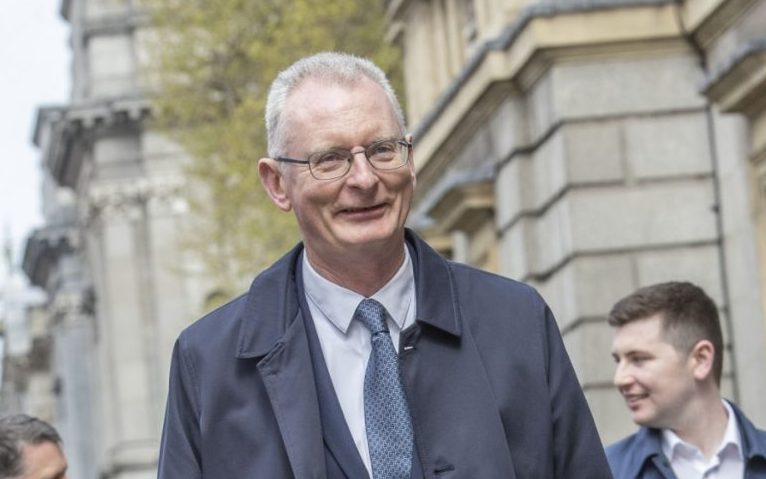Irish industry leaders urge calm in the face of the Trump administration’s global trade war and say now is the time to really get behind Europe’s indigenous SMEs.
The impact that will be felt from the so-called Trump-led ‘Liberation Day’ attempt to impose tariffs on countries across the world remains to be seen but it will be severe for many nations.
While the UK is getting a 10% tariff the entire EU including Ireland is being targeted with 20% tariffs.
“To protect the economy and jobs we can draw on what worked in the Covid and Brexit measures. The most important domestic response is to support enterprises most affected by the tariffs”
Not only that but there may be more aftershocks as pharmaceuticals – a crucial Irish export – and semiconductors are exempt for now.
Taoiseach Micheál Martin, TD, said there is “no justification” for 20% tariffs on Ireland and the EU.
Ireland’s membership of the EU could be a saving grace if one of the world’s largest trading blocks can negotiate successfully with the United States.
The launch of the trade war also puts a spotlight on Ireland’s future successes in the area of foreign direct investment (FDI) and more than ever Ireland and Europe’s small and medium enterprises (SMEs) will need to be able to trade with agility and be supported to the hilt through a reduction in bureaucracy, for example.
Here are some responses from industry leaders to the Trump administration’s latest economic manoeuvre:
Ibec CEO Danny McCoy:
We are deeply disappointed by the US Administration’s decision to impose 20% tariffs on imports from the European Union, particularly given the impact it will have on transatlantic trade and consumers. We now urge the Irish Government and the European Commission, to act with urgency to find a negotiated solution with the US administration.
Government must also work with business to assess the potential consequences for the Irish economy resulting from the imposition of US tariffs and the likely EU response to these tariffs. The Government must advocate for a proportionate and measured EU response, informed by a detailed analysis of supply chains, strategic considerations, and the broader implications of any retaliatory measures.
While this will present challenges for a number of sectors, we anticipate that the new tariffs will result in a net overall export impact of around 2–3% in the short-term. Thankfully, we are in a position of economic strength, which will provide the necessary cushion to absorb slower growth and invest in diversifying market opportunities.
To protect the economy and jobs we can draw on what worked in the Covid and Brexit measures. The most important domestic response is to support enterprises most affected by the tariffs. This should include time-bound short-time working supports to help keep employees connected to businesses experiencing demand shocks, as well as other measures to enhance productivity and access to new markets.
Open and free trade has been hugely beneficial to the global economy. Ireland, Europe, and the US have all gained significantly from this trading relationship. Ireland, in particular, has played a crucial role in providing substance and strategic positioning for US firms accessing the European single market and global markets. Our strong track record of delivery has not only benefited our own economy but has also contributed to the success of US firms and their shareholders.
Now is also the time to accelerate national and EU-level measures that enhance overall business competitiveness. Addressing business costs, reducing regulatory burdens, improving infrastructure delivery, and investing in skills, AI, and innovation will be critical in strengthening productivity and resilience in the face of this international disruption.
Myles O’Grady, group CEO, Bank of Ireland:
Yesterday’s tariff announcement takes a further step towards a period of global change. At Bank of Ireland, our focus is on tangibly supporting our customers as they navigate this changing landscape.
That’s what we have worked to do over the past decade – through a range of disruptive events – and indeed that’s been a guiding principle for the Bank since we first opened our doors more than 240 years ago.
There are a range of ways that we actively support our customers, and today we’ve drawn these together in one Online Hub for our business and corporate customers.
Here, they can access the latest publications from the Group’s Economic Research Unit, insights from Davy, New Ireland, and the Bank’s investment markets team, and find out how to contact our on the ground team of Sector Specialists covering Food & Beverage; Agriculture; Technology Media and Telecoms; Retail; Health; and Hospitality. We’ll also post details about upcoming events and publications to this page.
While we are not complacent about the future, our business and corporate customers are undoubtedly resilient, entrepreneurial, and ambitious. We’re ready to work with them as they deliver their plans for future success.
Ian Talbot, CEO of Chambers Ireland and Secretary General of ICC Ireland:
While the tariffs present immediate challenges, it is essential that Ireland and the EU respond with calm and resolve. To navigate these challenges effectively we should prioritise strategies that (a) enhance our competitiveness and (b) strengthen our trade engagement, rather than escalating tensions.
Market access must now be a key focus, which means helping businesses understand the regulatory and logistical requirements they must address to succeed in trade. We need to utilise the advantages of the Single Market and our access to the UK market while continuing to diversify into new international markets. Investment will be essential to ensure that businesses have the support to enter and expand in other markets.
With the right approach, this challenge can become a catalyst for progress. Both the Capital Markets Union and the Banking Union should be progressed to improve access to finance for small businesses, support the green and digital transitions and strengthen our economic resilience. A referendum should also be held on the Unified Patent Court at the earliest possible opportunity.
Action in these areas will galvanise our competitiveness and safeguard our long-term economic stability.
There are likely to be significantly different sectoral challenges arising from US policies and potential responses over the next few weeks. Government must closely monitor the impacts, particularly on SMEs, and consider measures to support viable businesses as they re-engineer their business models.
Finally, Government must pursue an urgent, relentless focus on the delivery of vital infrastructure. Delivering on what we can control has never been more vital.
Martin Shanahan, head of Industry at Grant Thornton:
The announcement by President Trump of 20% reciprocal tariffs on the EU will unquestionably have a negative impact for Ireland, given its significant trade with the US.
Once implemented, these tariffs will have an immediate impact in two potential ways, higher consumer prices and lower company profits and most likely a combination of both. In turn, lower company profits will impact corporation tax take over time.
Medium to longer term impacts will depend on the decisions that companies make around their supply chains, global production, tax, and future investments. We have yet to hear what the EU response to announced tariffs will be. Given that the response will come from the EU rather than directly from Ireland, the focus now for the Irish Government will be on feeding into the EU response.
The tariffs announced will have different potential impacts across different industries depending on their exposure to trade. It is of course still possible that a negotiated outcome will see tariffs averted.
-
Bank of Ireland is welcoming new customers every day – funding investments, working capital and expansions across multiple sectors. To learn more, click here
-
For support in challenging times, click here
-
Listen to the ThinkBusiness Podcast for business insights and inspiration. All episodes are here. You can also listen to the Podcast on:
-
Spotify
-
SoundCloud
-
Apple










